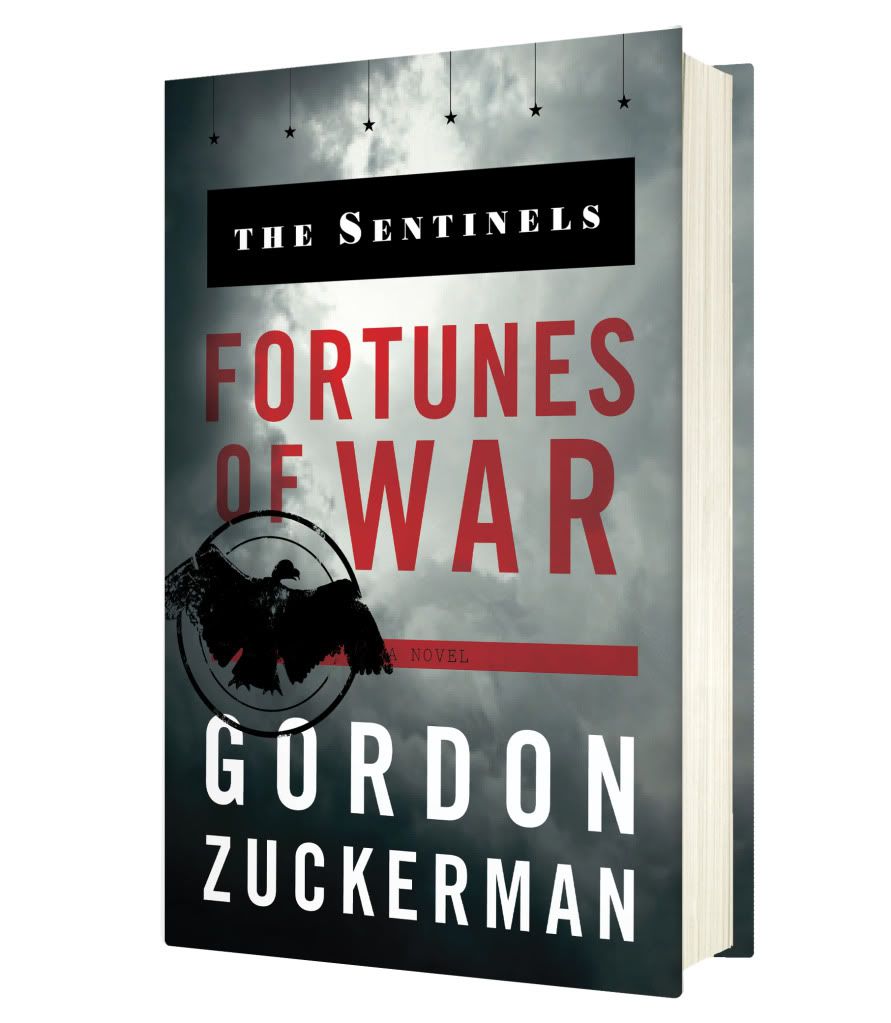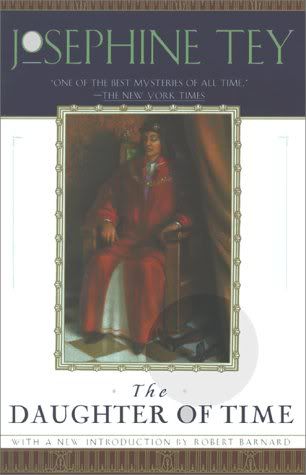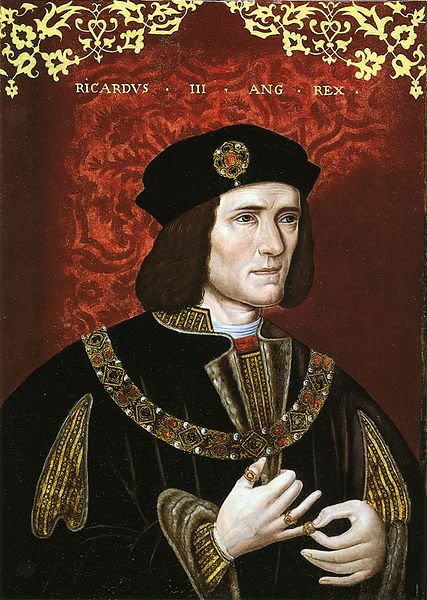
by Gordon Zuckerman
Cover: Meh... The six stars that appear to be "hanging" off the top of my cover seem a bit pasted-on, in a last-minute style because maybe the designer thought there wasn't enough going on, but otherwise it is suitably dark and no-nonsense for a wartime thriller.
Summary: We have all heard the phrase "money makes the world go 'round," but we haven't seen it come to fruition quite like this. In this first novel in a projected series by Zuckerman, six post-grad students act like the "Cassandra" of World War II; under the tutelage of the mysterious and powerful "Dr. Tom," they were brought together to solve the equations behind the "Power Cycle." They believe they have predicted the beginning of a massive war based on the patterns of industrialists and their manipulation of international finances. We all know they're right: World War II breaks out, and German steel, weaponry, auto, and shipping magnates are secretly behind much of it... even Hitler himself is unaware of just how fundamental is their influence.
Fast forward to 1943, and the six students had gone their separate ways. They themselves are each descendants of powerful bankers and capitalists, so they are easily occupied. One, however, the Swiss banking heiress Claudine, has kept tabs on several of the Germans, and doesn't like the patterns she sees. She reenlists the help of her old cohorts to track the movement of their funds, and together they realize they must take matters into their own hands. In their bravado and self-sacrifice, they name themselves "The Sentinels," and they will do anything they can to prevent another hellish tragedy, even if it means risking life and limb.
My Review: I got an ARC from the author and was excited to get to it because a) I love a good thriller and haven't read one since May, when I read Jurassic Park again in the wake of Michael Crichton's death, and b) I like WWII stories quite a bit and haven't really sat down to one since Atonement several years ago. So, The Sentinels: Fortunes of War was ending quite a few reading droughts for me.
For a thriller, this novel has quite a large cast of main characters. There is Jacques, who apparently likes wine, women, song, and combatting "imperialistic conquest." Henri Demaureux and his daughter Claudine are bankers from Geneva, who pursue skiing the Alps as much as fightin totalitarianism. Mike Stone is boxer, banker, and expert embezzler (at least when it comes to stealing from the "wrong kind" of people, like those bent on world domination). Cecelia Chang is brilliant, forthright, and first in the U.S. line of defense against financial destruction. Tony is a cool heir to an Italian vinery and Ian heir to an auction house fortune, but we don't see much of either of them.
And so on and so forth. We meet the colorful cast of The Sentinels themselves as well as their allies, and one thing is certain: everyone is powerful and also happens to be incredibly attractive. We hearken back to a time when "the men were men and the goils were goils," so there's a little bit of romance mixed in with the spying escapades. While counterfeiting the German industrialists' financial deposits, Jacques finds himself in the middle of a love triangle: does he stay with Natalie, the charming actress, or Claudine, his old friend and trusted coworker? None of his friends seems to care about this predicament. Thus, I was more intrigued by the relationship between Mike and Cecelia. They are both driven, ambitious, and energetic. Mike treats Cecelia like an equal, even in this period before feminism, and that makes sense amongst this group of progressive, intellectual friends. They would do anything for each other, and that was fun to read about.
The book is a little heavy on the exposition. There's quite a bit of "But surely, you can't mean..." going on and "As I said already, and for some reason feel the need to restate...", but it's the most prevalent in the first third of the book. Zuckerman paces his story so that the Sentinels must bring themselves to become spies and actually go out on covert missions. They are dealing with incredibly rich individuals and organizations, after all; they know that discovery could mean certain death. So, I would say that the first part of the book is like a Greek drama in that the action happens off-stage and everything must be "spelled out" for the audience, but later on we get to see things happening. It also means that a little time on characterization goes missing, since we go from exposition directly to action; there's not much room to endear us to the heroes. We agree with their mission, and we want them to succeed, but the more minor characters, like Ian and Tony, lose out on earning much interest from the reader.
As for the subject matter, which on the outset seems a bit heavy: Zuckerman handled it deftly and with enough skill that one doesn't need a finance degree to understand what's going on. I happen to be an Economics student, so I agree with his theories on money being the prime mover of wars and history. Technically, and from what I know of political science, this is Marxist theory, where history is a progression of markets and workers, and of course the financial giants work into that (it's only Marxist in that he was the first theorist to talk about History with a capital H in purely Economical with a capital E terms, not in reference to that it promotes pure Marxism, and by that I mean what we would typically term "communism," and... oh my lord, I'm DONE). Regardless, it made for an exciting premise and made sure that this was something of an "intelligence thriller", as well.
Overall, I liked the subject matter, the setting, and the basis of the characterization. There were some narrative issues, with the pacing and the minor characters, and it's not John Le Carre, but on the whole a fine debut thriller. It will be interesting to see if Zuckerman continues on with "The Sentinels."
Visit the author's website (and read the first chapter free!)
Buy this book on Amazon









